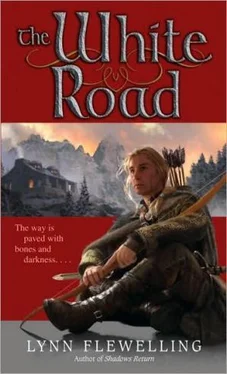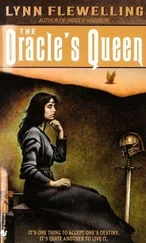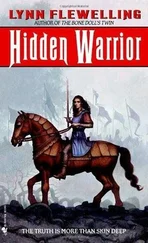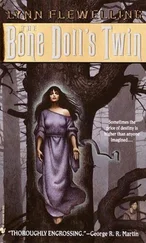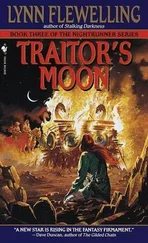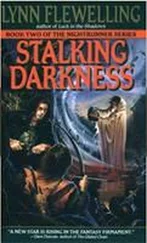But as before, the fingerling flew away without nipping Sebrahn. The rhekaro followed it with his eyes as it fluttered into the trees.
CHAPTER 8
Following the Oo’lu’s Song
TURMAY PLAYED his oo’lu every night. It could set wet wood on fire, charm rabbits from their holes into his snares, and who knew what else? All Rieser cared about were the nightly visions of their quarry, but by the time Rieser and his Ebrados reached the great lake called Black Water, the answer was always the same—south—and vague enough to make the captain wonder how they would find them in a whole region—especially one in which they were almost certain to be recognized as outsiders.
They avoided the little Tírfaie hamlets they passed, but weren’t above stealing from sheepfolds and root cellars, and finding oats for the horses in unattended barns. They took shelter where they could, in deserted byres or cottages when they could find them, but more often in hastily made branch huts. Hâzadriën was very skilled at their construction, and Turmay knew a song to keep out the snow and wind.
As the weeks drew out, Rieser was proud of his riders, especially Thiren and Rane, the youngest. So far they hadn’t complained or shirked, though they and the others were a good deal leaner than they had been when they left the valley.
As ’faie, they stood out in this part of the world, and drew curious looks from the Tír they met when deep snow forced them onto the highroad. It was best to keep their hoods up and their mouths shut, and they did just that, though the two brothers couldn’t help looking at the women.
The glamour hiding Hâzadriën’s true features was holding well; he appeared to have dark hair and ordinary blue eyes, rather than his true silver. Silent, ancient, and bone-pale, he was neither male nor female, but since he had no breasts, it had been the custom from Hâzadriël’s day to call him “he” and “him.” Clothed, and cloaked in the khirnari’s magic, there was nothing remarkable about him.
The land around the lake called Black Water was more heavily settled, and avoiding the Tír was no longer an option. The deerskin map, which Seneth had commissioned from the clan archivists, began here. Following it, and Turmay’s visions, they forged ever south and west.
As captain of the Ebrados, Rieser had learned the Tírfaie tongue and studied their ways. He’d even spoken to a few, when the hunt for wayward ’faie had taken him to some remote village near the pass. So he was able to barter in the markets of the small towns they passed through, south of the huge lake. He got by well enough in the towns, exchanging game for vegetables and dried fruits.
In the smaller villages, however, people hunted their own dinner and weren’t interested in any bartering, so he used some of the silver coin he carried, though he kept his gold well hidden. The small silver pieces were made like Tír money, blank and rectangular, and valued by their weight. Farther south the money changed to round coins stamped with designs, but the shopkeepers still took his silver gladly.
It was here that he first overheard people talking of some war to the south. The countries of Skala and Plenimar were shown on his map as two large islands separated by a sea called Inside, and seemed to be waging perpetual war, judging by what he was hearing in the marketplaces.
Beyond the lake, they entered a thick forest and followed a road leading in the right direction. Exhausted and filthy from sleeping rough, they finally gave in and stopped for the night at a lonely inn. Hopefully they wouldn’t draw too much attention to themselves. He wondered what the local folk would make of Turmay.
The inn was built of timber, with a thatched roof. The sign hanging over the door showed what was apparently meant to be a dragon, painted a garish red.
Ducking his head under the low doorway, Rieser entered a large room with a broad hearth and half a dozen tables. A handful of fellow travelers were scattered around the room, eating stew and bread, and drinking from large clay cups. Everyone was talking loudly and he found it hard to understand them. He caught a few familiar words, but the accent was very different from what he’d learned.
At the back of the room a thin, grey-haired woman stood behind a sideboard, serving up mugs of some drink—probably turab, judging by the smell and the state of inebriation of some of the patrons. A harper sat by the fire, plucking out a lively tune, while a young boy carried out food from a kitchen beyond. The room stank of sweat and smoke and ale, but he and his little band had no room to brag on that account. It had been weeks since they’d had a chance to bathe in anything more than an icy stream. He and the others stomped the snow from their boots by the door, but they didn’t attract much attention until they pushed back their hoods. The room went quiet and suddenly all eyes were upon them.
The old woman came around the board to greet them, smiling wide. “Welcome!”
As for the rest of it, he was fairly certain she was saying that no ’faie had passed through here for many years, and that they were to go warm themselves by the fire.
“Thank you, old mother,” he said, bowing. “Your hospitality is much appreciated.”
The silence was finally broken by loud laughter, apparently at what he’d said, or how he’d said it. More likely the latter, given the difference in accent.
She gave Turmay a curious sidelong glance as she urged them toward an empty table by the hearth. Turmay’s witch marks weren’t visible now, of course, the way they were when he played his oo’lu; it was more likely his short stature, strange clothing, and the long horn he refused to be without even for a moment. He even slept with it by his side.
The woman called out shrilly at the open door at the back. Moments later, the boy reappeared with a tray of mugs. It was turab, and a fine brew, too.
“It’s good!” Taegil whispered in surprise.
Turmay took a sip. “Yes. And I smell venison.”
The food proved good, as well. The venison stew was thick and well seasoned, with chunks of carrot and onion among the meat, and the bread was sweet and hot from the oven.
As they were eating, one of the other patrons sauntered up, thumbs hooked in his sword belt, and looked them over. “Where are you from, brothers?” he asked Hâzadriën in passable but strangely accented ’faie, though he certainly was not of that blood.
“My friend is mute,” Rieser explained tersely. “We are from Aurënen.”
“I don’t know your accent. Which part of Aurënen?”
“The far south.” Rieser went back to his food, hoping the fellow would go away.
“What clan?” the man persisted, appearing genuinely pleased to encounter so many of them at once. “You’re the first I’ve ever seen not wearing any sen’gai.”
“We’re from a small clan in the south. How do you come to speak our language so well?” Rieser asked, hoping to steer him clear of where they were from, in case he’d been there himself.
“My wife,” the man said proudly. “She’s what you people call a ya’shel, from Skala. Pretty as the morning sky and as good a woman as ever trod the earth.”
“Is that so?” Rieser suppressed an inward shudder at the thought of this malodorous Tír—or any Tír, for that matter—rutting with a ’faie woman, even if she was only a Tír-begat half-breed.
“Where you headed? Up to Wolde?”
“No, we’re going south.”
The man laughed. “South’s a big place.”
“We are going home,” Rieser told him.
“By land or river?”
“River?”
Their inquisitor seemed surprised by his ignorance—not a good thing. “The Folcwine. Part of what we call the Gold Road up here, though a good stretch of it is the river. It’s been a mild winter, and last I heard there was still open water all the way to Nanta. By the last reports, the Skalans were garrisoned there, keeping the peace.” He gave Rieser another curious look. “The river’s your fastest way south.”
Читать дальше
